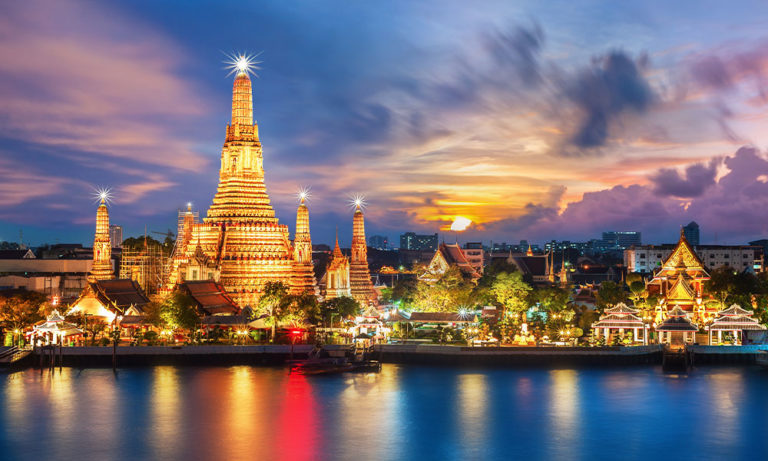
[ad_1]
The government of Thailand is taking steps to walk back the legalization of adult-use cannabis, barely more than a year after personal use of the plant was legalized in the Southeast Asian nation. The government passed a law to decriminalize cannabis in June 2022, when the plant was removed from the nation’s list of illegal narcotics. Under the legislation, adults aged 20 and older are permitted to use cannabis for medical purposes, although not in public places. Adults are also allowed to grow cannabis in home gardens, provided they first notify local authorities of their cultivation activity.
Commercial enterprises are also permitted to grow cannabis after registering with Thailand’s Food and Drug Administration. The law also permits restaurants and cafes to serve foods and beverages infused with cannabis, provided they contain no more than 0.2% THC. Smoking cannabis in public remains illegal and can result in penalties including up to three months in jail and a fine of up to $800.
“There has never once been a moment that we’d think about advocating people to use cannabis in terms of recreation – or use it in a way that it could irritate others,” Thai Health Minister Anutin Charnvirakul told CNN shortly before decriminalization went into effect last year.
A lack of comprehensive regulations to govern cannabis production and sales, however, has led to a boom in cannabis. Thousands of cannabis cafes and dispensaries are now doing business in Thailand, particularly in cities popular with tourists such as Bangkok, Chiang Mai and Pattaya.
New Government Seeks Tighter Rules
But in August, a new coalition government took power, led by prime minister and real estate developer Srettha Thavisin of the Pheu Thai Party, which ran on an anti-drug platform in the campaign leading up to last year’s election. In a recent interview, Srettha said the new coalition government, which also includes ten other parties, has come to an agreement to change the new law and ban the recreational use of cannabis.
“The law will need to be rewritten,” Srettha told Bloomberg Television in an interview in New York while attending the UN general assembly. “It needs to be rectified. We can have that regulated for medical use only.”
When asked if there will be a compromise for recreational use, Srettha replied “no,” adding that problematic drug use has been “widespread lately.”
The plan to regulate cannabis more strictly is supported by some tourist industry officials, who say that the lack of regulations has become problematic. Thanet Supornsahasrungsi, group executive director of Sunshine Hotels and Resorts in Pattaya, told the Bangkok Post that most of the cannabis shops in the city are marketing the herb for recreational use, leading to reports of excessive use.
“If we’d like to use it for medical purposes, law enforcement should be stricter to make sure we can offer them medical treatment which is safe for their health,” said Thanet.
New Legal Industry Opposes Recriminalization
But a return to prohibiting cannabis for recreational use is opposed by business leaders that have taken advantage of decriminalization. Wassaya Lemvijan and her husband Nitikrist Attakrist, both attorneys, registered with the government to grow and sell cannabis shortly after decriminalization last year.
“We were under a lot of stress as lawyers,” Attakrist told CNN. “We didn’t plan on setting up a cannabis shop, but we did and we wanted to teach people how to get the best benefits as well as the responsibilities that come along with it.”
Lemvijan says that since opening their shop, the quality of the cannabis produced in Thailand has improved as the domestic industry gets up to speed. “The quality of Thai cannabis has gotten better and better. It is much cleaner and safer now than in the past,” she said.
The couple doesn’t believe that Thailand’s cannabis legalization reforms should be rolled back. But they’re not against tighter regulations. “The situation in Thailand is complicated… but most small businesses like ours aren’t opposed to new rules if they’re within reasonable frameworks and easy to comply with,” Lemvijan added.
Gloria Lai, Asia regional director of the International Drug Policy Consortium, says she believes that scaling back reforms to only include medical marijuana, which the country legalized in 2018, will do more harm than good.
“It’s evident that prohibiting or banning substances does not eliminate them and can have the opposite effect to what was intended,” Lai told CNN. “It’ll be devastating if Thailand’s new government returns to drug policies that have clearly failed. If criminal penalties like prison sentences are re-introduced… it could lead to people being arrested and forcefully tested for drugs and given criminal records again.”
[ad_2]
Source link